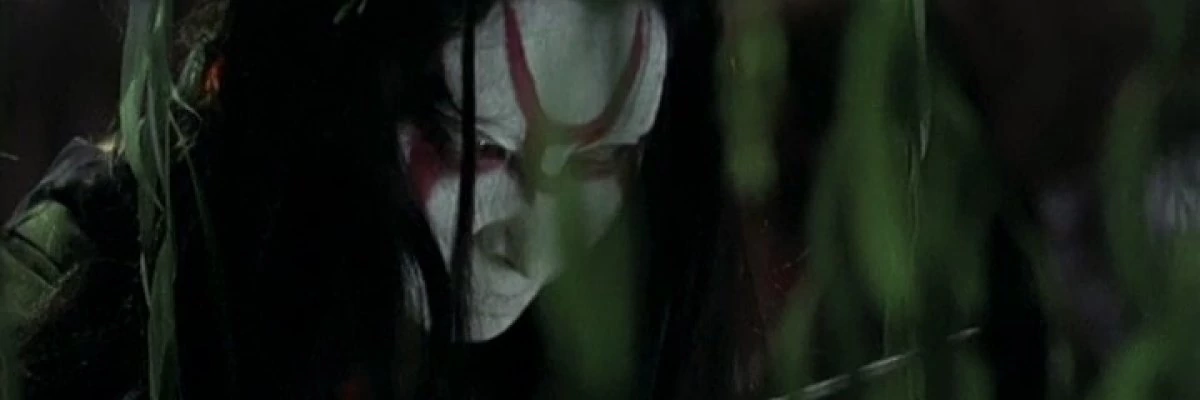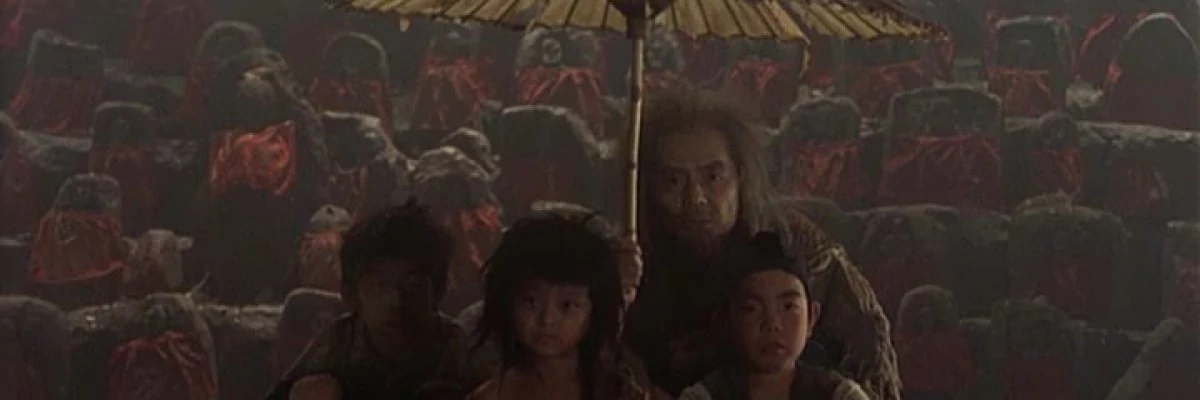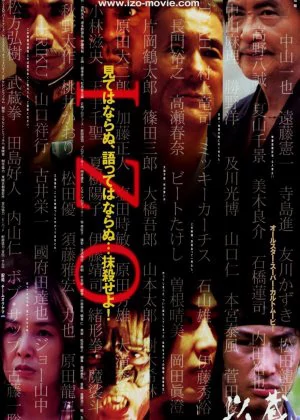Izo
Takashi Miike is known for making extravagantly weird films, but when he released Izo he went beyond the expectations of many of his fans. So much in fact that many of them caved in under the weight of the film's pretensions. Truth be told, Izo isn't an easy film and even though it's an impressively realized project, this is not a film for everyone.

The funny thing is that you could cut at least ten 2-minute trailers, each of them using unique footage of the film, that would make it look like a real hoot. Izo is filled to the brim with uncompromising genre fare, there's enough in here to fill up five regular genre films and still have leftover footage lying around. But that's just the surface, Miike didn't set out to make a great popcorn movie, instead he's using these scenes to set up a mental beating that will either break you or leave you gasping for air.
For a 128-minute film, there is surprisingly little plot to go around. For the greater part, Izo is a continuous repetition of mayhem and slaughter. The twist here is that it doesn't really add up to anything. Even though Izo has a goal he wants to complete, there is no clear path towards it. There isn't a simple bad guy he needs to beat up, nor is there a person he needs to save. Izo's quest is a futile one, which make his actions all the more vile and meaningless.
Izo is a samurai who was tortured and beheaded before he turned into a vengeful spirit. No matter how many times he seeks out revenge, the lives he takes aren't enough to make him forget the way he was treated. And so he sets out to kill the rulers of the universe, a guild of aristocrats who live secluded from the world they built. Unsure where to find them, Izo travels through time and space in order to locate them, killing everyone who crosses his path.

While Izo features some pretty cool camera work (Izo's entrance at the wedding is pretty spectacular), some scenes do look a little sloppy from up close. There are plenty of stand-out scenes, but the ones in between appear to be a little rushed. The lair of the aristocrats for example is a bit lacking in visual richness. Maybe it was a budget problem (it couldn't have been easy to finance this film, even though Miike was at his international peak when he made it), but the shifts in quality between scenes is a tad disappointing regardless.
For the soundtrack Miike made heavy use of folk-singer Kazuki Tomokawa (who also scored Landscapes The Boy Saw). Like him or not, but his unique and peculiar style defines the films he scores. His raw voice, strange rhythms and less than slick guitar work is instantly recognizable. I would never listen to his work outside film, but as part of a soundtrack he makes a strong impression and Izo benefits greatly from it.
Miike could count on a slew of famous actors to fill in all the roles, ranging from superstars like Takeshi Kitano and Ryuhei Matsuda to a long list of Miike regulars and even some international celebrities like Bob Sapp (not the biggest name in the film business, but still). They're all just secondary characters though, hardly lasting a couple of minutes (if that long) before their heads are cut off. The cutting is done almost exclusively by Kazuya Nakayama who no doubt played the defining role of his career.

Izo plays like a never-ending sequence of killing sprees. When Izo finishes one battlefield he is simply transported to the next one, where he takes on the following batch of adversaries. Sometimes he fights samurai, sometimes police squads, but he could just as well appear in a classroom and murder a whole hallway of schoolgirls. After a while the fun evaporates and all that is left is a vile succession of mean and evil-spirited murders. There are two times when Miike interrupts this structure. Once in the middle of the film when Izo is given a little background story, a second time near the end when Izo finally reaches the aristocrats.
Needless to say, this turns Izo into a pretty tough experience. As the minutes pass and the bodies pile up, the film starts to weigh on its audience. Some people won't appreciate this, others will thank Miike for an exhilarating experience that is rarely found in commercial cinema. I've seen Izo three times now and the film keeps impressing me, it's a superb mix of genre film making and arthouse cinema, an unlikely mix that we might never see again in this form.
